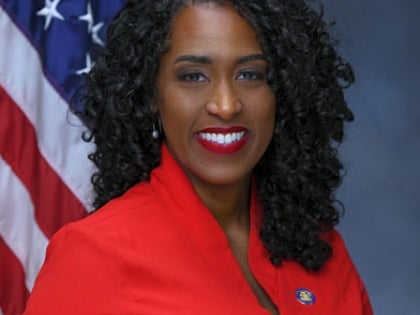
Commentary: Legislation would remove a roadblock to the social work profession
When Gov. Kathy Hochul gave her 2024 State of the State address, she appropriately focused on the many social crises experienced by New Yorkers, including domestic violence, mental and maternal health access, the housing shortage, opioid addiction and suicide prevention.
She talked about the widespread disruptions these issues have caused for families and communities across the state. Most importantly, she committed her administration to implementing solutions in these areas.
No New Yorker can doubt the existence of these problems. We see them every day.
As we listened to the governor, we recognized a common thread: Social workers are a primary workforce in all these domains.
Social workers are the backbone of our social service system. They deliver 75% of all mental health services. They are the mainstay of services in homeless shelters, on health care teams and in our schools. They work with people in the greatest need at the most urgent moments in their lives.
We desperately need social workers, and to fulfill the governor's plans, we need them now.
But despite this urgent need, we simply do not have enough social workers in the field. That’s why we introduced A5291/S5975, the Social Work Workforce Act, to remove barriers that exist for those interested in entering the field, and to expand and diversify this critical workforce.
Graduate social work programs in New York produce the largest number of social workers in the nation, about 7,000 a year. About half of the graduates are people of color and bilingual, and many of them have years of experience before entering graduate school.
In addition to the many state requirements that entry-level social workers must meet in order to be licensed, graduates must pass a Licensed Master Social Worker exam. But there are extreme racial disparities in who passes the exam: About 88% of white graduates pass the exam, while only 49% of Black and 62% of Latino graduates achieve passing scores.
Because of the national discrepancies, four states have already eliminated the exam and 18 others are on the path to do so. Five states have never required an entry-level exam. National and New York state organizations, including the National Association of Social Workers, the Council on Social Work Education, the Latino Social Work Coalition, the New York State Deans of Social Work and Social Workers for Justice, all support the removal of the exam requirement.
This is not to say that New York will no longer have rigorous oversight over the quality of social workers in the state. The state approves the curriculum of each social work department, as well as their internship programs, which require at least 900 hours of supervised internships. In addition, all social work programs must pass national accreditation standards that ensure graduates have the knowledge and skills necessary to practice their profession. Finally, to practice independently, graduates will still be required to pass the Licensed Clinical Social Worker exam.
Removing this barrier will be an effective solution to increasing the number of social workers in New York. When Illinois did away with its entry-level exam in 2021, about 3,000 social workers were licensed the following year. Rhode Island has experienced a similar growth, along with improved diversity in its workforce.
New York desperately needs this workforce. We can’t let a flawed exam reject the people we need most for our communities today.
State Sen. Samra Brouk of Rochester, chair of the Senate Committee on Mental Health, represents the 55th Senate District. Assemblymember Jessica González-Rojas of Queens represents the 34th Assembly District.



